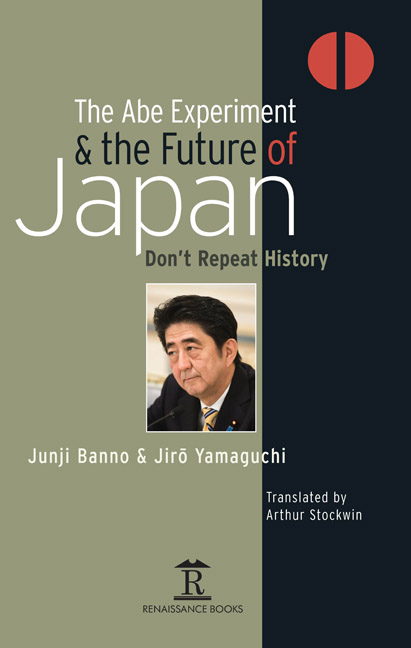Book contents
- Frontmatter
- Contents
- Foreword
- Translator’s Preface
- Conventions
- Chapter 1 Should the Aim be to Prevent Constitutional Revision?
- Chapter 2 Why was Post-war Pacifism Defective?
- Chapter 3 Is there a Political Elite in Japan?
- Chapter 4 Is the Liberal Democratic Party Really Tough?
- Chapter 5 Why Can’t We Tackle Reduction in Inequalities?
- Chapter 6 Where Should Japan Go From Here?
- Afterword
- Index
Chapter 6 - Where Should Japan Go From Here?
Published online by Cambridge University Press: 30 April 2022
- Frontmatter
- Contents
- Foreword
- Translator’s Preface
- Conventions
- Chapter 1 Should the Aim be to Prevent Constitutional Revision?
- Chapter 2 Why was Post-war Pacifism Defective?
- Chapter 3 Is there a Political Elite in Japan?
- Chapter 4 Is the Liberal Democratic Party Really Tough?
- Chapter 5 Why Can’t We Tackle Reduction in Inequalities?
- Chapter 6 Where Should Japan Go From Here?
- Afterword
- Index
Summary
HOW SHOULD JAPAN GO FROM HERE?
Yamaguchi. The year 2009, when the government changed and the Democratic Party came to power, was an uplifting and extraordinary moment in Japanese postwar politics. The people had veered towards idealism, and were genuinely pursuing an ideal. The long years of LDP rule were ended by the will of the people, and the DPJ Government was born. What was most striking as a result was the novelty and reversals of policy that soon became apparent. Seen from the present perspective, the Hatoyama Government said many wonderful things, such as ‘a society in which everyone has his or her place and role', or ‘an East Asia community’, or reducing greenhouse gases by 25 per cent. It also projected internally and externally the sense that it would tackle idealistic issues.
There were some things that had really changed. In policies to reform social welfare relations, especially in matters of employment, poverty policy, and policy for the disabled, social democratic aspects were to the fore. But in general the government failed in management, the DPJ self-destructed, and in foreign policy management, it lacked political skills and capabilities, so that the electorate became disgusted with the pursuit of ideals. Thus a mood became widespread that they should cease trying to make ideals a reality by political means. They began to aim for stability rather than reform.
If we look at recent public opinion polls, an interesting characteristic becomes clear. When people are asked about specific policy issues, they do not support the line being promoted by the Abe Government. When we see polls mainly on the Constitution and collective defence, the people have generally strengthened their pacifist inclinations. When they are asked about the economy, even though the economic situation may have improved and business profits increased because of Abenomics, ordinary people do not see a positive outlook for their interests in employment, wages or social security payments, and exhibit a highly realistic understanding of these matters. On the question of nuclear power stations, public opinion is clearly strongly in favour of an exit from nuclear energy.
- Type
- Chapter
- Information
- The Abe Experiment and the Future of JapanDon't Repeat History, pp. 113 - 136Publisher: Amsterdam University PressPrint publication year: 2016

